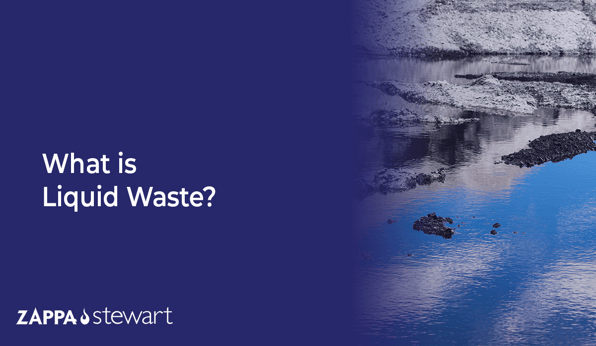More About Reclaim Waste
Table of ContentsGetting My Reclaim Waste To WorkNot known Factual Statements About Reclaim Waste Reclaim Waste Things To Know Before You BuySome Known Incorrect Statements About Reclaim Waste Indicators on Reclaim Waste You Need To Know
Explore the types, occurrences, and kinds of liquid waste. Residential sewer waste describes the waste and products from a residential sewage-disposal tank. This sort of waste is created by people in houses, institutions, and other structures. This only consists of sewage-disposal tanks that have a drain field. The correct management and disposal of domestic sewage waste call for liquid waste to be transferred to a sewer treatment plant where the proper techniques and equipment are related to purify and throw away waste.
Business waste often includes possible dangers, such as flammable products or a blend of liquid and strong waste products, and calls for a more sophisticated and comprehensive disposal process. The disposal of industrial waste commonly includes the filtering of waste prior to transport to guarantee risk-free and appropriate disposal. Industrial waste is produced from byproducts and overflow of commercial processes and manufacturing.
This kind of waste can not make use of the exact same sewage monitoring transport or procedures as septic or commercial fluids. The hazardous waste management procedure calls for the evaluation and screening of fluid waste prior to it undergoes the disposal process (liquid waste disposal melbourne). Overflow waste is the fluid waste that comes from drainage and excess stormwater in very populated locations or cities
Overflow waste can trigger contamination and flooding if not handled appropriately. Find out more regarding drain cleaning and waste administration. Making certain correct waste monitoring can prevent catastrophes and decrease environmental harm. Both people in household setups and experts in industrial or production industries can profit from comprehending the procedures and policies of liquid waste monitoring.
The Best Strategy To Use For Reclaim Waste
Contact PROS Solutions today to learn more about our waste monitoring and disposal services and the appropriate methods to look after the liquid waste you create.
(https://profile.hatena.ne.jp/reclaimwaste1/)Do you understand what happens to your water when you draw the plug, flush the toilet or drain pipes the washing equipment? No? Well, it deserves knowing. This supposed 'wastewater' is not only an essential source yet, after treatment, will certainly be released to our land, rivers or the sea. Utilized water from toilets, showers, bathrooms, kitchen sinks, washings and industrial procedures is known as wastewater.

water utilized to cool down machinery or clean plant and tools). Stormwater, a form of wastewater, is drainage that flows from agricultural and city areas such as roof coverings, parks, gardens, roadways, courses and gutters into stormwater drains pipes, after rain. Stormwater streams untreated directly to neighborhood creeks or rivers, eventually reaching the sea.
7 Easy Facts About Reclaim Waste Shown
In Queensland, a lot of wastewater is dealt with at sewer therapy plants. Wastewater is transferred from domestic or industrial sites through a system of drains and pump stations, called sewage reticulation, to a sewer therapy plant. City governments develop, keep and operate most sewage treatment plants. Operators are certified under the Environmental Defense Act 1994 to release treated wastewater at an acceptable ecological criterion right into waterways.
The Department of Natural Resources encourages regional governments regarding managing, operating and keeping sewage systems and therapy plants. In unsewered areas, city governments may require householders to mount private or home sewage therapy systems to treat domestic wastewater from bathrooms, kitchen areas, washrooms and washings. The Department of Natural Resources authorizes using family systems when they are shown to be efficient.
Many stormwater gets no treatment. In some new click here now neighborhoods, treatment of some stormwater to remove clutter, sand and crushed rock has actually started utilizing gross toxin traps. Wastewater treatment happens in four phases: Removes strong issue. Bigger solids, such as plastics and other things incorrectly discharged to sewage systems, are gotten rid of when wastewater is passed with screens.
Makes use of tiny living organisms understands as micro-organisms to damage down and remove staying liquified wastes and great particles. Micro-organisms and wastes are integrated in the sludge.
Not known Details About Reclaim Waste
Nutrient removal is not available at all sewer therapy plants due to the fact that it needs costly specialised equipment. Clear fluid effluent generated after therapy may still include disease-causing micro-organisms - liquid waste removal.

A lot of wastewater flows right into the sewerage system. Under the Act, neighborhood governments carry out authorizations and licences for environmentally appropriate activities (Periods) including wastewater launches that may have a regional impact.
The Greatest Guide To Reclaim Waste
Otherwise, samples are taken for research laboratory analysis. Typically several tests are needed to establish the degrees of each of the various toxins such as oils, heavy metals and pesticides in water. Tracking supplies valid information about water high quality and can verify that permit conditions are being satisfied. The info gotten via monitoring offers the basis for making water high quality decisions.